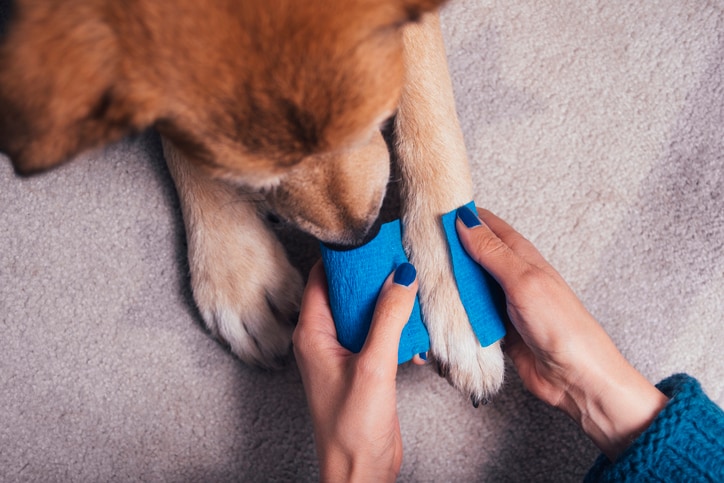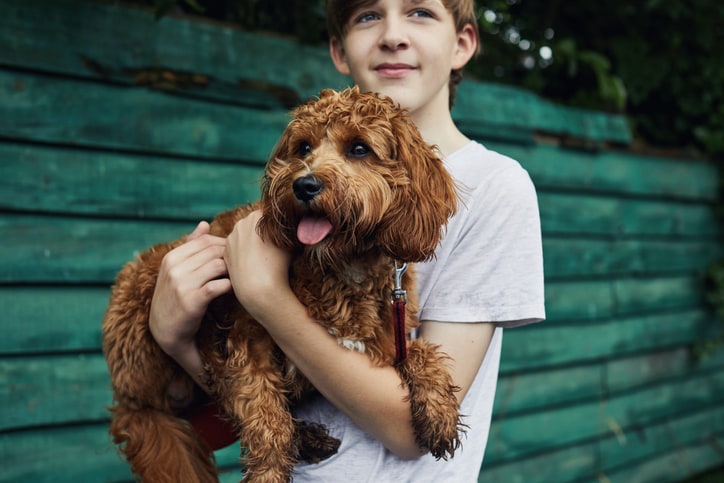Whether you own a pet or care for other people’s animals, it’s important to be prepared and know what to do if a pet emergency arises. Plus, if you’re a professional dog walker, pet sitter, pet groomer, or kennel owner, investing in the proper first-aid training and pet safety certificates will make you better at your job, look good on your CV, and help you get new clients.
Learn the benefits of pet CPR and first-aid training
Accidents happen: it’s one of life’s unfortunate truths. But by knowing what to do in an emergency, pet professionals can offer greater peace of mind to pet parents, and pet parents can rest assured they’ll be able to give their furry friend the best possible care in every situation.
Training courses for pet care professionals and owners usually cover the following areas:
- Understanding basic pet owner responsibilities
- Administering medicine
- Managing breathing and cardiac emergencies
- Assessing vital signs
- Managing urgent care situations
- Treating wounds
- Treating electric shock
- Preparing for severe weather and natural disasters
You should also be familiar with common poisons—Animal PoisonLine is a great resource.
Decide what type of safety training or certification is right for you
If you’re a pet care professional, make sure you select a course that offers a certificate or proof of participation, so you can add it to your professional CV. You should also consider what kind of accidents and issues are most likely to crop up in your line of work. For example, a dog walker is likely to deal with an overheated dog, a cage-free boarding kennel must have a plan to prevent collar accidents, a groomer should have deep knowledge of proper restraint techniques and wound care, and so on.
Owners should take their pet’s age and character into account, and look into what they need to do to address the resulting safety issues.
Find a pet CPR and first-aid course near you
There are several ways to earn your pet first-aid and CPR certification. This can be done online via e-training courses or in a one-on-one personal training session or group course. Many organisations offer these options nationwide. Your local veterinary practice, animal hospital, or shelter may either offer courses or be able to point you in the right direction. Your local RSPCA branch may also offer training.
Though most of these classes focus on dogs and cats, some will teach first aid for more exotic animals, like birds and lizards. Prepare to spend anywhere from two to eight hours learning the necessary techniques to receive certification. Some classes will even teach puppy-proofing basics, proper restraint methods, and herbal remedies or alternatives.
Build a pet first-aid kit
Any pet caregiver, even if you haven’t been certified in first aid yet, should have a well-stocked first-aid kit. This kit will look a little different from the typical human kit but will provide essential supplies for even minor injuries.
Here’s what to include in a pet first-aid kit:
- Phone number, clinic name, and address of your vet as well as any local veterinary emergency clinics
- Absorbent gauze pads, adhesive tape, cotton balls or swabs, and alcohol wipes
- Fresh 3% hydrogen peroxide to induce vomiting (always check with a veterinarian or animal poison control expert before giving to your pet)
- Styptic powder (an antiseptic clotting agent to stop bleeding)
- Over-the-counter antibiotic ointment
- Saline eye solution
- Artificial tear gel
- Ice pack
- Disposable gloves
- Scissors with blunt end
- Tweezers
- Oral syringe or turkey baster
- Liquid dishwashing detergent for bathing
- Towels
- Small torch
Other nice-to-have items include:
- Nylon lead
- Self-adhering bandage (stretches and sticks to itself but not to fur—available at pet shops and from pet supply catalogues)
- Rectal thermometer and petroleum jelly to lubricate it
- Current photos and descriptions of your pets to help others identify them in case you become separated
Of course, this list can be modified based on your individual clients or pets, but these are good things to have on hand and know how to use.
Preparing for severe weather events and natural disasters can also be useful, depending on where you live. Mother Nature often has some surprises up her sleeve, and knowing what to do in a flood, severe storm, or wildfire could be life-saving.
Learning the necessary skills to diagnose and treat injuries will not only put you and your clients at ease but will also help you tackle any potential emergency with a level head and steady hand.

